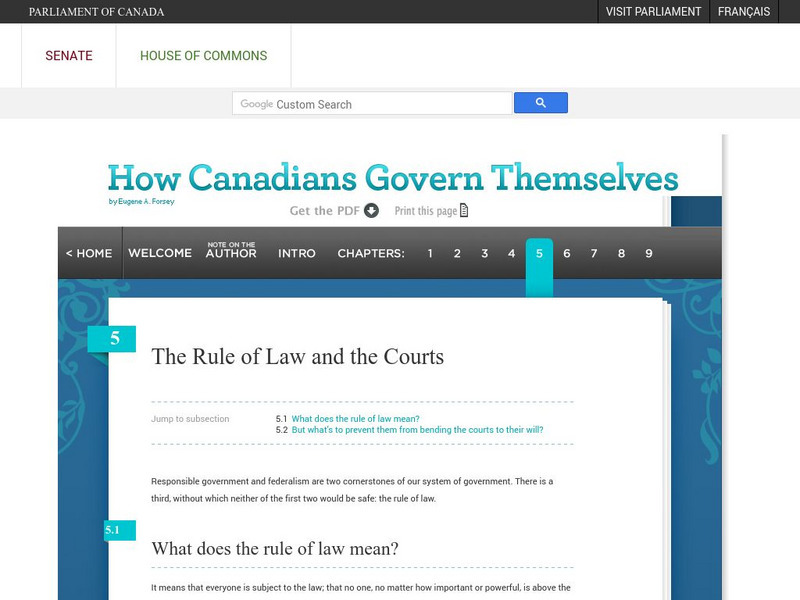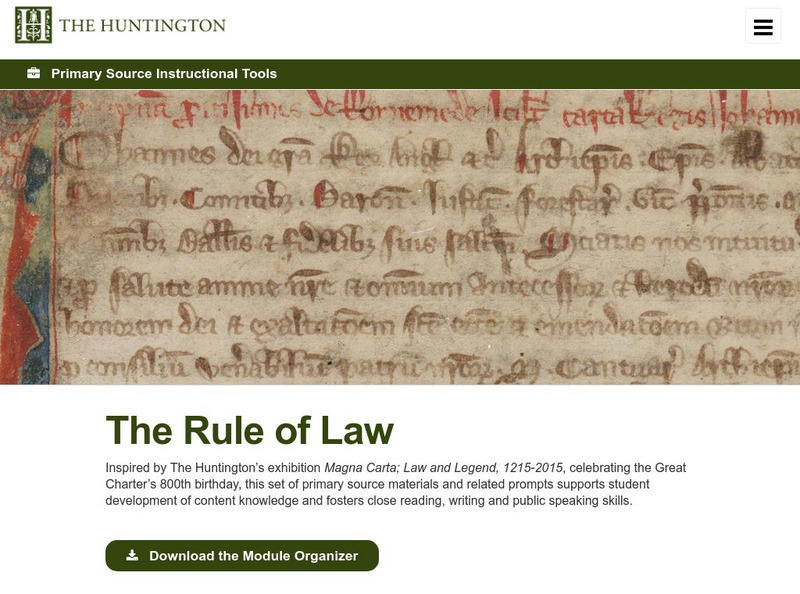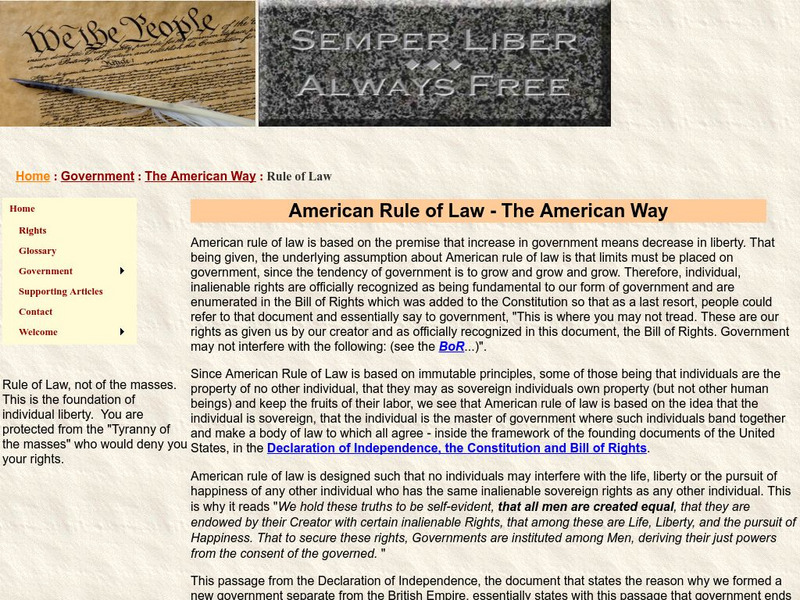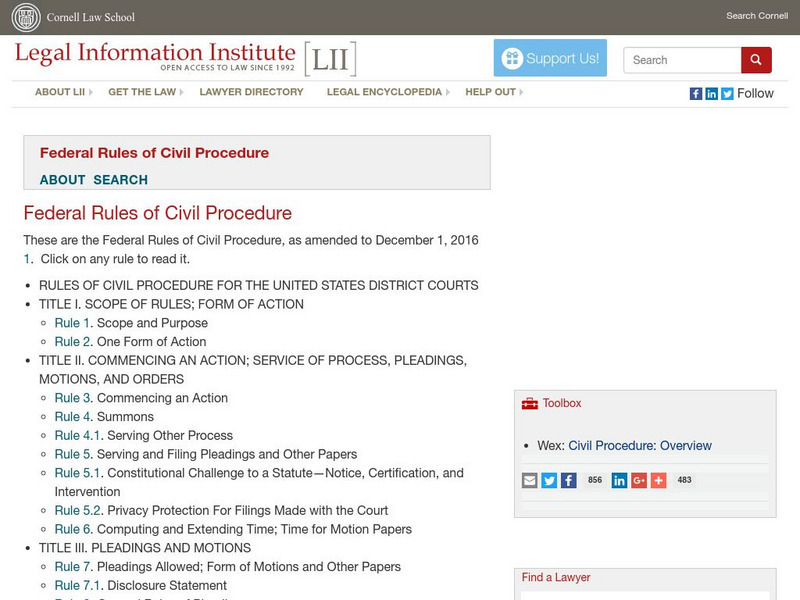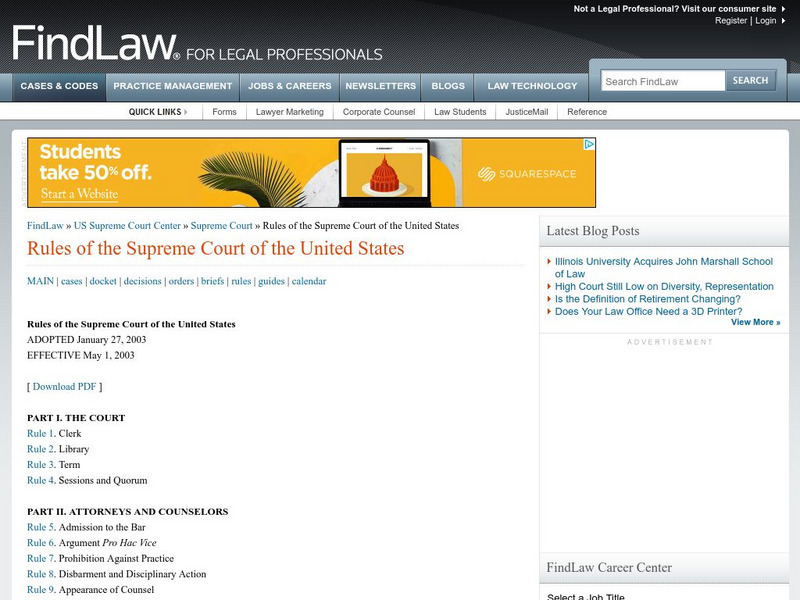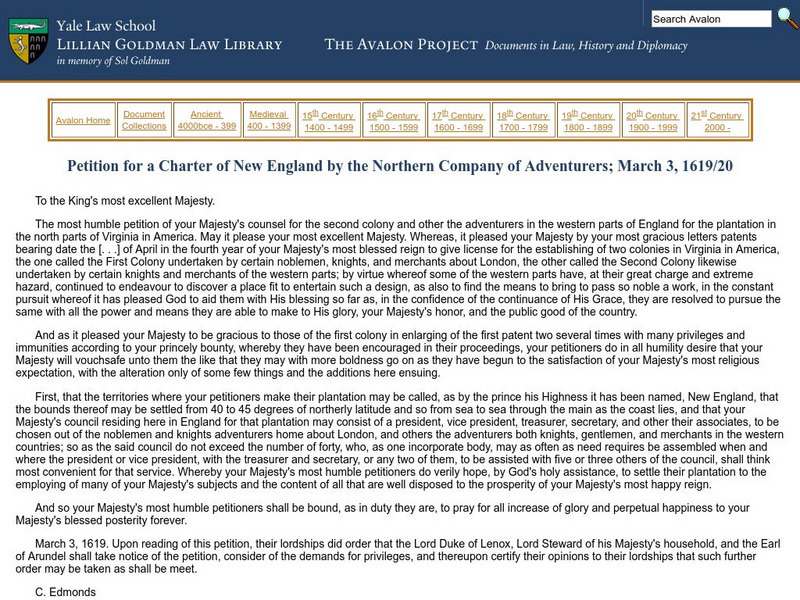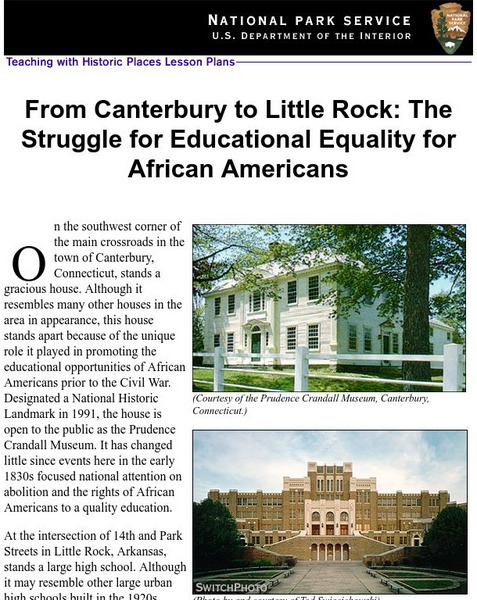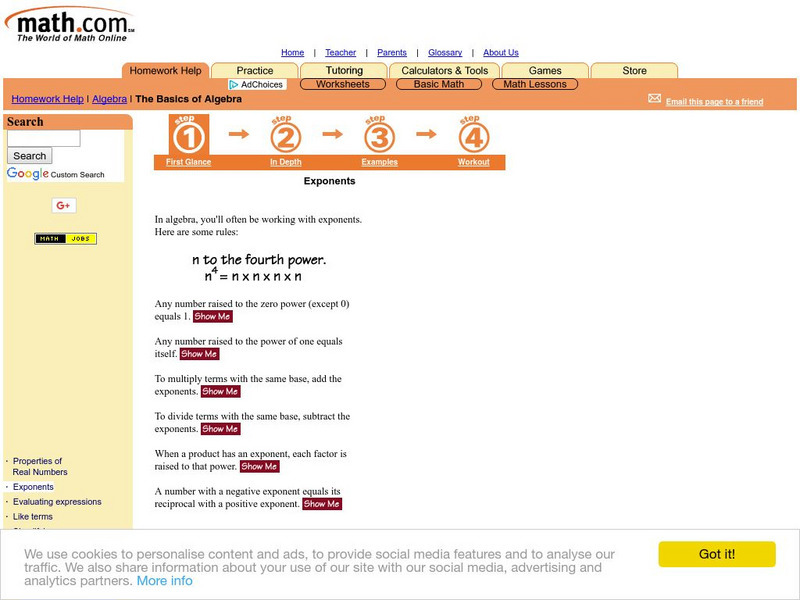Hi, what do you want to do?
Other
Parliament of Canada: The Rule of Law and the Courts
An analysis of the Rule of Law and what it means for Canadians. This resource gives the historical background leading up to the law.
Huntington Library
Huntington Library: The Rule of Law
In this lesson, students examine primary source materials including the Book of Laws, the Constitution, the Bill of Rights, and the Magna Carta in order to understand their meaning and to compare them. They then prepare an argument on...
Other
World Justice Project: What Is the Rule of Law?
Derived from internationally accepted standards, the World Justice Project's definition of the rule of law is a system in which the following four universal principles are upheld by four universal principles. These four universal...
Other
Parliament of Canada: The Rule of Law and the Courts
Late Canadian Senator Eugene A. Forsey left a public legacy to all Canadians including this website hosted by the Parliament of Canada. In this article, he introduces important legal principles that underpin the Canadian court system,...
PBS
Pbs Learning Media: The Rule of Law
China's recent adoption of a legal system based on the rule of law is the focus of this video from Wide Angle.
PBS
Pbs Learning Media: Magna Carta: Rule of Law
Learn how the rule of law and due process, first guaranteed by Magna Carta, became an essential component in U.S. constitutional law in this video with supporting materials. [1:11]
iCivics
I Civics: Rule of Law
Students learn about the rule of law and how it protects individual rights and freedoms. By performing short, scripted skits that illustrate what life might be like without the rule of law, students identify six factors that make up the...
PBS
Pbs Teachers: George Washington and the Rule of Law (Lesson Plan)
A lesson that supports an examination of George Washington's commitment to the principle of the rule of law by looking at specific situations faced by Washington in which he chose the rule of law over expediency or personal power.
Other
Semper Liber: American Rule of Law the American Way
American rule of law is based on the premise that increase in government means decrease in liberty. That being given, the underlying assumption about American rule of law is that limits must be placed on government, since the tendency of...
Other
Litigator's Internet Resource Guide: The Rules of Court
A database of the rules, forms, and dockets for both the state and federal court systems.
Annenberg Foundation
Annenberg Learner: Democracy in America: The Courts: Our Rule of Law
This unit provides a comprehensive look into the value of the U.S. court system as a means to maintain the safety of American citizens. Offers video, readings, web resources, and activities.
iCivics
I Civics: The Constitution: Rules for Running a Country
Handy introduction to the Constitution of the United States, which has been our government's rulebook since 1789.
Cornell University
Cornell University: Law School: Federal Rules of Civil Procedure (1999)
This resource provides the Federal Rules of Civil Procedure.
Thomson Reuters
Find Law: Rules of the Supreme Court
Site that acts as an index to all the rules that govern the United States Supreme Court. Each rule can be seen in its entirety by clicking the link on the left the listed rule.
Other
Teacher.org: Rules and Laws
This lesson is designed to help learners evaluate rules. It is important since not all rules are necessarily good or appropriate. Sometimes, school rules are arbitrarily imposed, other times they are arrived at as the result of consensus.
Independence Hall Association
U.s. History: The Bill of Rights
The Constitution spelled out the powers of the national government, but many Anti-federalists felt there should be equally explicit a guarantee of individual rights. Read about the compiliation of what became known as the Bill of Rights...
Other
Howard University: Brown v Board of Education at 50: Fulfilling the Promise
Howard University had a direct role in the Brown v Board of Education and has continued its research in the 50 years since working to continue and improve the rulings of the case. This is a free resource providing a collection of court...
Yale University
The Charter of New England:1620
Read the online historical text written in 1620 establishing religious freedom, means of governing, and rule by law in the Plymouth colony and New England.
Curated OER
National Park Service: The Struggle for Education Equality for African American
"Canterbury, Connecticut, and Little Rock, Arkansas, are links in a chain of events representing the long struggle for equal educational opportunities for African Americans. This lesson plan highlights two important historic places and...
Yale University
Yale New Haven Teachers Institute: Supreme Court Rules on School Desegregation
This thoughtful unit explores the history of school desegregation legislation, including a discussion of the impact of the Plessy v. Ferguson and Brown v. Board of Education decisions. A six-week plan of lessons, along with other sample...
Other
Lord's: The Home of Cricket: Laws of Cricket
Extensive and thorough information about the game of cricket and its rules.
Math.com
Math.com: The Basics of Algebra: Exponents
Students learn about the laws of exponents through this algebra resource. A learning tutorial and practice problems to check for comprehension of the math concepts are included.
US National Archives
Nara: The Magna Carta
One of the historical events that led to the creation of the limited government of the United States, the Magna Carta was written in 1215 as a promise from King John of England to his demanding barons. It put English kings under the rule...
Other
Rules online.com: Robert's Rules Online
This site focuses on the study of parliamentary law and provides the full text of Robert's Rules of Order Revised (published 1915), completely indexed and keyword searchable.





